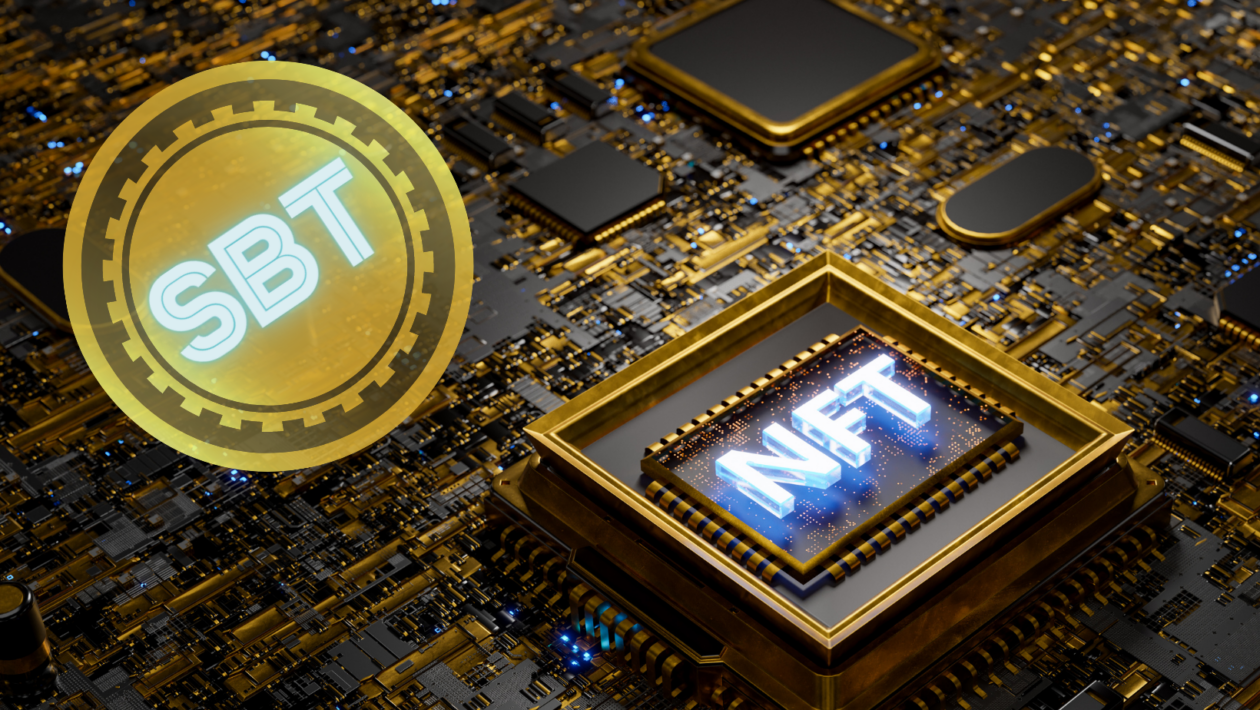Billions of people never get the chance to fulfill their economic potential because they lack verifiable identities and credit histories — often as a result of inherent bias in the traditional financial system and the lack of data at their disposal. The US$10 billion global consumer credit industry that underpins the US$55 trillion global household debt market is ripe for disruption, and the growth of blockchain technologies presents a unique opportunity to transform it, particularly with the introduction of decentralized finance and soulbound tokens.
But what are soulbound tokens, and what are the implications for those trapped in the so-called “credit paradox”?
What are soulbound tokens?
In the 2022 paper, “Decentralized Society: Finding Web3’s Soul,” authored by E. Glen Weyl of Microsoft, Puja Ohlhaver of Flashbots Ltd., and Vitalik Buterin of Ethereum Foundation, the concept of soulbound tokens (SBTs) was proposed as a solution for many of the challenges facing the decentralized web.
According to the paper, a soulbound token is a new non-transferable, publicly-verifiable digital token that can serve as an individual’s digital CV or passport, representing their official credentials, memberships, affiliations and other personal milestones that are uniquely theirs, including credit scores.
Because it is minted and stored on the blockchain, soulbound tokens are non-fungible digital assets, providing a cryptographically secure and unforgeable record of the components that make up an individual’s identity. Stored in a virtual wallet, they offer decentralized identification or establish access rights to different services without the need to provide personal details.
The process for how this can work is actually pretty simple: If you want to add a new piece of information (say, your career history) to your soulbound token, you send out the transaction from your wallet. The data that gets added will be stored on a public ledger so that all parties can see it. If someone finds something wrong with this information later down the line — for example, if they discover that some schools were left off because their database isn’t up-to-date — they could submit another transaction revising or correcting this information in real time as opposed to having only one point in time when everything was correct (like how credit bureaus currently operate).
This means there is no limit on how many times someone can update their soulbound token or expand the details within. This is especially beneficial for the concept of decentralized credit scoring because they are updated in real-time, providing accurate and unbiased details without requiring the individual to share personal information.
The current solution for providing individuals with credit uses a centralized system to track how much of an individual’s credit score should be attributed based on their income and savings as well as predetermined risk factors that may be outdated or downright biased. The soulbound token process will be completely decentralized, and it will allow individuals to easily access their financial data and exchange it with others in order to receive loans or other forms of financial support from third parties without having to go through traditional banks or lenders.
How the ‘credit paradox’ holds back the poor
The “credit paradox” is a real-world challenge that occurs when unbanked people — those without access to banking services — would like to borrow money but lack access to credit. Very often, the people who need credit the most are also the least likely to get it. The credit paradox has four parts:
- A person is unable to prove identity and trustworthiness;
- There is a lack of data on the person (or their transactions);
- Lenders discriminate against the person because of historic, biased assumptions;
- The person lacks access to banks and financial institutions.
Soulbound tokens change this, as they are independent of any central source of data. The creditworthiness of the token can be quantified based on its origin and usage, without needing to know anything about the person who is using it. This makes a soulbound token accessible to everyone and breaks down barriers across borders.
SBTs can be used to create and house an individual’s credit profile. The tokens can also provide that information to lenders so they won’t have to rely on outdated methods for determining whether or not you are worth lending money to. And if you can prove your creditworthiness with a soulbound token, lenders will have no reason not to lend you money. Through continued lending and repayment, the credit score grows and all records are verified through the blockchain.
Crypto’s appeal to unbanked adults
Decentralized finance (DeFi) is a new kind of financial technology based on blockchain, which provides secure distributed ledgers that are transparent, immutable (can’t be altered) and verifiable to anyone.
In centralized finance, money is held by institutions, like banks, which act as trusted third parties to ensure money moves between parties, but with every touchpoint usually costing the user a service fee. DeFi challenges this system by providing trust and transparency and empowering individuals with peer-to-peer services, eliminating the middlemen and their fees while allowing money to move instantly. Anyone with an internet connection can use DeFi, which makes it a potential game-changer for the unbanked.
But despite this, DeFi has remained inaccessible to most people around the world. That’s because of the high levels of collateralization required by crypto lenders, and because of the trustless nature of the ecosystem. But new types of credit models are trying to address this.
Companies are attempting to fulfill the promise of blockchain and decentralized finance, providing the trust architecture needed to unlock capital for the billions of people without access to traditional banking. By lowering the barrier to entry through trusted credit scores, these new solutions enable people access to capital without the need to provide a crippling amount of collateral. With just a phone and internet connection, DeFi, according to the World Bank, “has the potential to be a leapfrog technology, enabling the underbanked to bypass traditional finance and gain access to digital services and assets previously unavailable.”
Then it’s no wonder that there is a strong correlation between developing nations where the majority of the unbanked reside, and the global adoption of digital currencies. Vietnam, the Philippines, Ukraine and India are the top adopters of crypto, according to the 2022 Crypto Adoption Index, with the U.S. at number 5 spot being the only Western country in the top 14.
To create new banking and credit capabilities, digital identity sits at the heart of how blockchain technologies can be leveraged so that soulbound tokens can be affixed permanently to those identities. Decentralized identifiers (DIDs) are a type of zero-knowledge proof that support verifiable credentials without the need to provide personal data. By using such technology, individuals can share real-world data to improve their credit score, whilst retaining security and privacy, unlike traditional types of credit scoring systems that harvest and collect user data.
Ethical and practical challenges
Yet as with any discussion about identity, data and security, if the industry starts adopting soulbound tokens, what are the ethical and practical challenges?
For one, there are many different types of soulbound tokens and they will be used for many different purposes. We can’t say for sure how the market will respond to this new technology but we can try to anticipate some of the potential issues that might arise.
One area that needs to be addressed is the creation of a code of ethics. However, it is not easy creating one that all stakeholders can agree on. The industry can discuss the various issues at stake, but it can take years for consensus to be reached on how these issues should be addressed. Creating such a framework will require overcoming many political and cultural barriers.
Any code of ethics should also reflect the decentralized nature of Web3 and be global, transparent and open, based on the principles of privacy and fairness, and based on the principles of consent, accountability and responsibility
Another challenge is cross-border data sharing — the need for creating agreements between countries so that they can share information with each other without having access restrictions in place (such as those imposed by Europe’s General Data Protection Regulation). International cooperation is crucial if we want this new system to work well enough that everyone benefits from participating in it.
The soulbound credit NFT
The technology has advanced to the point where it is now possible to mint credit profiles as credit NFTs. A credit NFT is an immutable and verifiable representation of a person’s credit profile that enables them to manage their financial identity, and assess and build a personalized credit score on unbiased data. The credit NFT can then allow users to access low or no-collateral loans, better deals, or unique experiences.
And while the blockchain is a great source of unbiased data, alternative credit scores can also be combined with real-world data in order to customize risk models for decentralized applications. An example of this is happening now in Brazil, where CreDA’s new Credit4Good program is using geo-referenced aerial surveillance data and on-chain behavioral data to build credit profiles and secure preferred borrowing rates for rural farmers in the country.
Transforming the future credit landscape
As an industry, we have a huge opportunity ahead of us. We can use the power of technology to make our world a better place and solve some of its most pressing problems. But it will require collaboration and cooperation between all players in this space — from governments to banks to fintech startups — to create new solutions for the future. A new credit model, Credit 3.0 is being designed with that objective in mind: to create an ecosystem where everyone can participate on equitable terms, regardless of their background or experience level in the industry. But it’s imperative that we also collaborate around an ethical code of conduct that includes principles like transparency and accountability.
There are a lot of challenges to overcome. But there is no doubt that the future of credit lies in blockchain technology and with it the ability to create a better system that works for all — not just the banks or credit rating agencies.
As the world moves into a new era of digital technology built on blockchain, soulbound tokens could be the world’s passport to a more inclusive, unbiased and secure financial reality. Let’s get to work!





